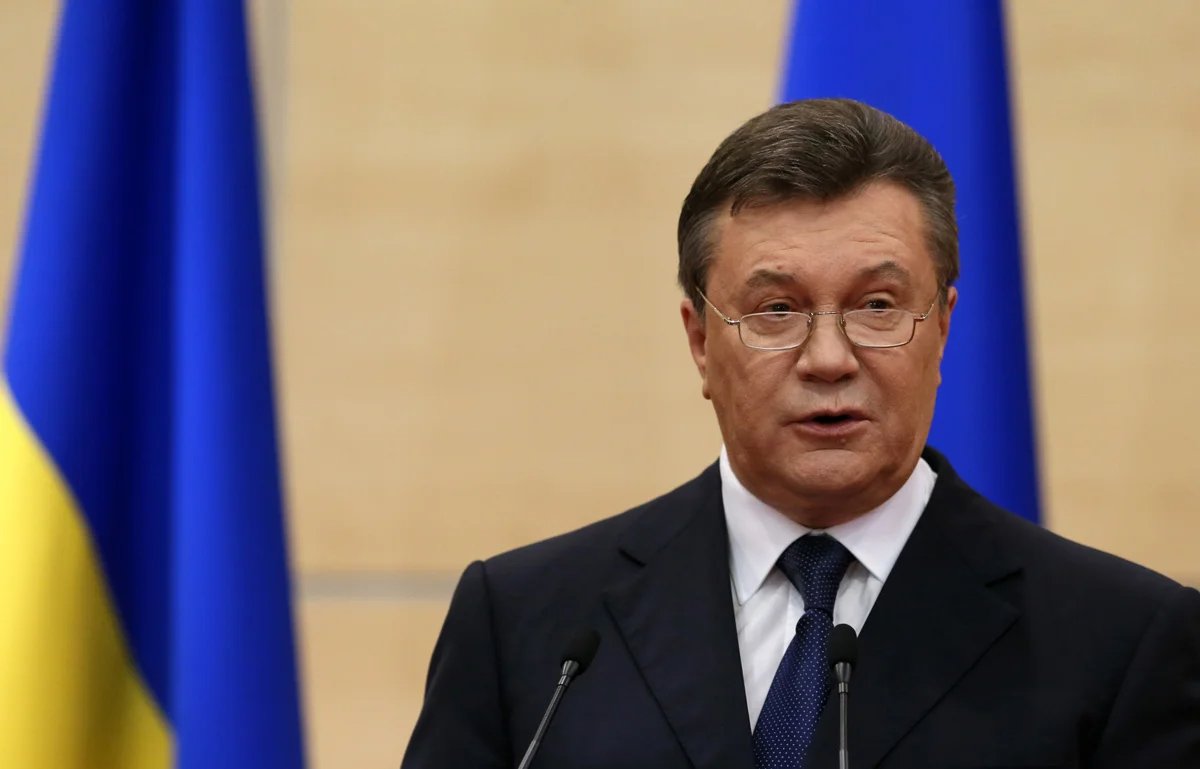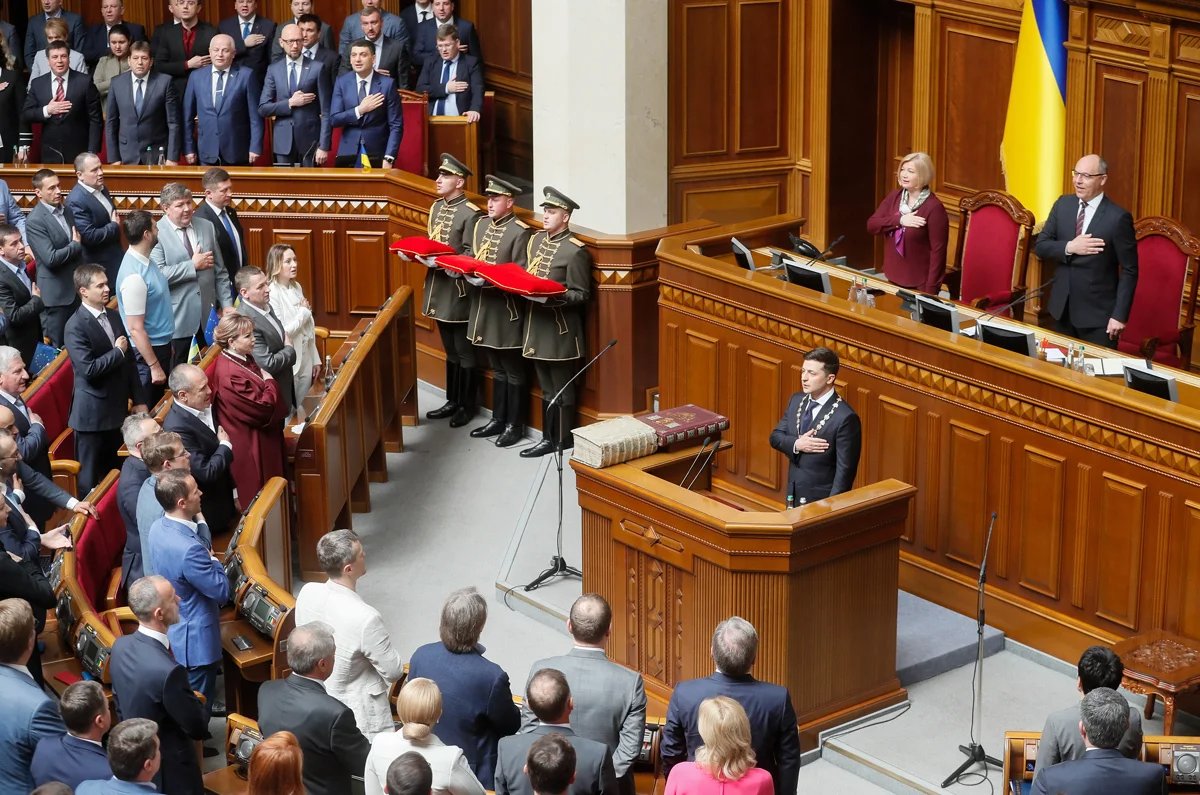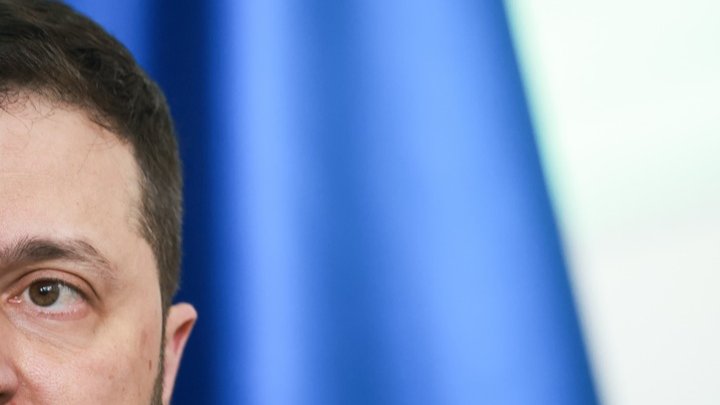Nobody now knows just how long Volodymyr Zelensky’s first presidential term will last. What we do know, however, is that the ultimate length of that term is inextricably linked to the end of the Russo-Ukrainian war, and quite how many more years and lives that war will consume is anyone’s guess.
Were it not for the Russian invasion, the Ukrainian presidential election would have been held on 31 March. But the country’s parliament, the Verkhovna Rada, decided to postpone it for fairly obvious reasons. Most constitutional experts agreed: Volodymyr Zelensky would remain in power until the inauguration of the next legally elected head of state.
If a presidential term ends while the country is under martial law, the constitution says that the president shall remain in office until a new president can be elected once martial law is suspended, thus ensuring the constancy, stability and continuity of the post.
According to the constitution, the chairman of the Verkhovna Rada takes on the duties of the president should the head of state be unable to complete their term. This applies only if the president resigns, if the president is unable to remain in post for health reasons, if the president is impeached, or if the president dies. In all other cases, presidential power goes on uninterrupted.

Former Ukrainian President Viktor Yanukovych speaks at a press conference in Rostov-on-Don, Russia, 11 March 2014. Photo: Sergey Ilnitsky / EPA
Ukraine has witnessed a sudden change in head of state in its recent history. Former President Viktor Yanukovych fled Kyiv for Russia on 21 February 2014 — at the peak of the Maidan protests, sparked by his sudden decision not to sign the European Union–Ukraine Association Agreement — bringing a premature end to his attempt to turn Ukraine into a Russian province.
Volodymyr Rybak, a Yanukovych ally and fellow member of the Party of Regions, immediately resigned as chairman, citing ill health. Oleksandr Turchynov was duly elected chairman of the Rada and assumed the duties of president the next day. He held both roles for 104 days, until Petro Poroshenko was elected and inaugurated as the new head of state. Turchynov also held military power as supreme commander-in-chief and head of the National Security and Defence Council and for several days, until a new government could be formed, headed the Cabinet of Ministers. This unprecedented concentration of power in one pair of hands, as circumstances dictated, meant there was no systemic collapse or chaos, as the Kremlin expected.
Zelensky will now become Ukraine’s acting president. But however much the Kremlin may dream, Zelensky’s presidential carriage won’t suddenly turn into a pumpkin on 21 May, and he will remain legitimate. A survey conducted by the Kyiv International Institute of Sociology in February showed that the majority of the electorate agrees with the constitution: 69% of those polled thought Zelensky should remain in office until martial law is lifted.
But however much the Kremlin may dream, Zelensky’s presidential carriage won’t suddenly turn into a pumpkin on 21 May, and he will remain legitimate.
His domestic critics promise not to forget nor to forgive Zelensky and his team for anything on their long list of grievances, but they have agreed not to do so until after the war. The majority of his opponents agree that it would be irresponsible to hold elections in Ukraine now anyway, and not only because an electoral campaign in a democratic society could well unleash the kind of passions that might jeopardise civil unity, much to the delight of the aggressor next door. Martial law involves the curtailment of certain constitutional norms such as freedom of speech and movement, as well as peaceful assembly. In such circumstances, how could Ukraine guarantee a free and fair election?

Volodymyr Zelensky, centre, at his inauguration in the Ukrainian parliament in Kyiv, Ukraine, 20 May 2019. Photo: Serhiy Dolzhenko / EPA-EFE
In modern Russia, of course, none of the above would matter, nor would it be allowed to affect the outcome of any Putin election. In Ukraine, by contrast, the procedure is taken seriously, since there are genuine political rivalries and people have faith in the results.
Holding an election in 2024 with so much of the country occupied would mean millions of voters being unable to vote. A large number of Ukrainians have been at the front since the earliest days of Russia’s full-scale invasion. Would those in the army lose their right to vote too? Polling stations would also be legitimate targets for the Russian military and there would be no way to guarantee citizens their safety. Would the huge number of Ukrainian refugees scattered around Europe and the world return to vote? Or would they choose to assimilate abroad instead of electing a president in Ukraine and creating new problems for themselves back home?
In modern Russia, of course, none of the above would matter, nor would it be allowed to affect the outcome of any Putin election.
In 2019, armchair experts were only too keen to see how quickly the cheerful and resourceful servant of the people would get bored of his new role and resign, screwing up everything in sight as he did so, including his own approval rating. I think if Zelensky could have foreseen the current situation and the 2024 version of himself at the start of that race to the top, he would have been horrified and wouldn’t have believed it. Would he have given up on the idea of politics altogether? It’s hard to say, but it’s not unthinkable.
But what is the likelihood of Zelensky resigning on his own terms? “I’m tired. I quit.” Zero. The changes are more than just skin-deep too. Zelensky will never forget his statement early on in his first term about how he saw a “desire to end the war” in Putin’s eyes, regardless of the fact that all intelligence reports pointed to the contrary.
Nobody is talking about elections in Ukraine now. Nobody, that is, except those on Russian television, who are still attempting to sow division in Ukraine. “The usurper, dictator, and Banderite nationalist number one plans to fight to the last Ukrainian!” Putin expresses his concern over the legitimacy of the president: how could he possibly sign a peace treaty with such a person?! The Kremlin’s propagandists promise another Maidan due to mobilisation in Ukraine, which just goes to show how little they understood Maidan in the first place.
The Ukrainians who irritated the powers that be ever since Ukraine achieved its independence in 1991 are either on the front line or contributing to the country’s victory in some other way. They may be unhappy with some of Zelensky’s choices, even angry with him, but they are not about to confuse him with the real enemy.
Nobody is talking about elections in Ukraine now.
Zelensky’s original objective in resisting the Russian invasion, re-establishing Ukraine’s 1991 borders, which a year ago Ukrainian society still saw as a viable goal, albeit a difficult one, is now totally redundant. The man who is about to become Ukraine’s acting president has no option other than to forge a world in which Russia will lack both the political or military means to threaten Ukraine in the future.
Join us in rebuilding Novaya Gazeta Europe
The Russian government has banned independent media. We were forced to leave our country in order to keep doing our job, telling our readers about what is going on Russia, Ukraine and Europe.
We will continue fighting against warfare and dictatorship. We believe that freedom of speech is the most efficient antidote against tyranny. Support us financially to help us fight for peace and freedom.
By clicking the Support button, you agree to the processing of your personal data.
To cancel a regular donation, please write to [email protected]

